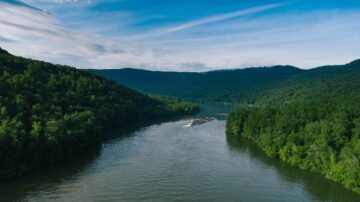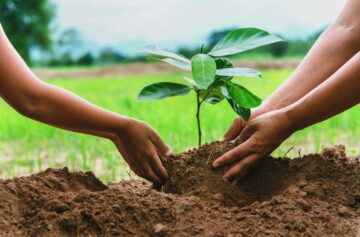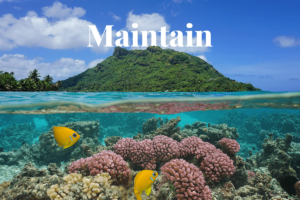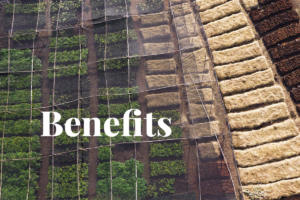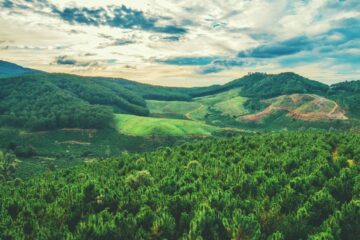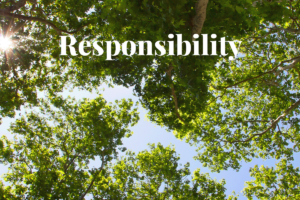Deforestation is a serious problem affecting many countries worldwide; the Philippines is no exception. The country is home to a vast array of unique flora and fauna, but deforestation has put many of these species at risk of extinction. Over the years, the Philippines government has implemented various programmes and initiatives to combat deforestation and promote reforestation, but the battle is still ongoing. In this article, we will explore the progress made by the Philippines in the fight against deforestation, the challenges it faces, and what more needs to be done.

Progress made by the Philippines
The Philippines made significant progress in recent years in its efforts to combat deforestation. The government implemented various programmes and policies to promote reforestation, sustainable forest management, and biodiversity conservation.
One such programme is the National Greening Programme, which aims to plant 1.5 billion trees across 1.5 million hectares of land by 2028. The programme has been successful in planting millions of trees across the country, and it has also created thousands of jobs in the forestry sector.
In addition to the National Greening Programme, the Philippines enacted various laws and policies to protect its forests. One such law is the Forest Management Bureau’s Community-Based Forest Management Programme, which aims to involve local communities in forest management and conservation efforts. The programme successfully reduced deforestation rates in some areas and promoted sustainable forest management practices.
 Mayon Volcano in the city of Legazpi, Philippines, with a mangrove plant.
Mayon Volcano in the city of Legazpi, Philippines, with a mangrove plant.
Challenges faced by the Philippines
Despite the progress made by the Philippines in its battle against deforestation, many challenges remain. One of the biggest challenges is illegal logging, which is a major problem in the country. Illegal logging contributes to deforestation and leads to the loss of biodiversity, soil erosion, and water pollution.
Another challenge the Philippines faces is converting forests into agricultural land. With a rapidly growing population and a need to feed its citizens, the Philippines has seen increased forest conversion for agriculture. Unfortunately, this conversion often leads to unsustainable farming practices, such as slash-and-burn agriculture, further contributing to deforestation.
Read about: Countries with the highest deforestation rates in the world
What more needs to be done
 Aerial view the Chocolate hills of Bohol Island, Chocolate hills geological formation in the Bohol province of the Philippines.
Aerial view the Chocolate hills of Bohol Island, Chocolate hills geological formation in the Bohol province of the Philippines.
While the Philippines has made progress in its battle against deforestation, more must be done to protect the country’s forests and the biodiversity they support. The government needs to enforce stricter laws and penalties against illegal logging and forest conversion. The country also needs to promote sustainable land-use practices and increase the involvement of local communities in forest management and conservation efforts.
In addition, the Philippines needs to address the root causes of deforestation, such as poverty and a lack of alternative livelihoods for local communities. Providing alternative livelihood options, such as eco-tourism, agroforestry, and sustainable forestry, can help reduce the pressure on forests and promote sustainable land-use practices.
Conclusion
The Philippines’ battle against deforestation is ongoing, but progress has been made. The country implemented various programmes and policies to promote reforestation, sustainable forest management, and biodiversity conservation. However, challenges remain, such as illegal logging and agricultural forest conversion.
To protect the country’s forests and the biodiversity they support, the government must enforce stricter laws and penalties against these practices and promote sustainable land-use practices. This is what DGB Group aims to do, promote sustainable practices and reforest the world at scale. DGB works with various stakeholders, such as governments and communities, to develop large-scale impactful nature-based projects that restore nature and capture large amounts of carbon. These projects help the regeneration of biodiversity and the restoration of vital habitats.
Contact us to find out more about our projects and how you can get involved
- SEO Powered Content & PR Distribution. Get Amplified Today.
- Platoblockchain. Web3 Metaverse Intelligence. Knowledge Amplified. Access Here.
- Source: https://www.green.earth/blog/the-philippines-battle-against-deforestation-progress-and-challenges
- :is
- 1
- a
- About
- across
- addition
- address
- affecting
- against
- Agricultural
- agriculture
- aims
- alternative
- amounts
- and
- areas
- Array
- article
- AS
- At
- Battle
- BE
- Biggest
- Billion
- Bureau
- by
- CAN
- Can Get
- capture
- carbon
- causes
- challenge
- challenges
- Chocolate
- Citizens
- City
- combat
- Communities
- CONSERVATION
- contributing
- Conversion
- countries
- country
- created
- deforestation
- develop
- DGB
- efforts
- exception
- explore
- extinction
- faced
- faces
- farming
- fight
- Find
- For
- forest
- formation
- further
- get
- Government
- Governments
- Green
- Group
- Growing
- help
- highest
- Hills
- Home
- How
- However
- HTTPS
- Illegal
- impactful
- implemented
- in
- Increase
- increased
- initiatives
- involve
- involvement
- island
- IT
- ITS
- Jobs
- Lack
- Land
- large
- large-scale
- Law
- Laws
- Leads
- local
- loss
- made
- major
- management
- many
- max-width
- million
- millions
- more
- National
- Nature
- Need
- needs
- of
- on
- ONE
- ongoing
- Options
- Philippines
- Planting
- plato
- Plato Data Intelligence
- PlatoData
- policies
- Pollution
- population
- Poverty
- practices
- pressure
- Problem
- programme
- programmes
- Progress
- projects
- promote
- Promoted
- protect
- providing
- put
- rapidly
- Rates
- recent
- reduce
- Reduced
- remain
- restoration
- Risk
- root
- s
- Scale
- sector
- serious
- significant
- some
- stakeholders
- Still
- stricter
- successful
- Successfully
- such
- support
- sustainable
- that
- The
- The Philippines
- the world
- These
- thousands
- to
- Trees
- unique
- us
- various
- Vast
- View
- vital
- Water
- What
- which
- will
- with
- works
- world
- worldwide
- years
- zephyrnet




